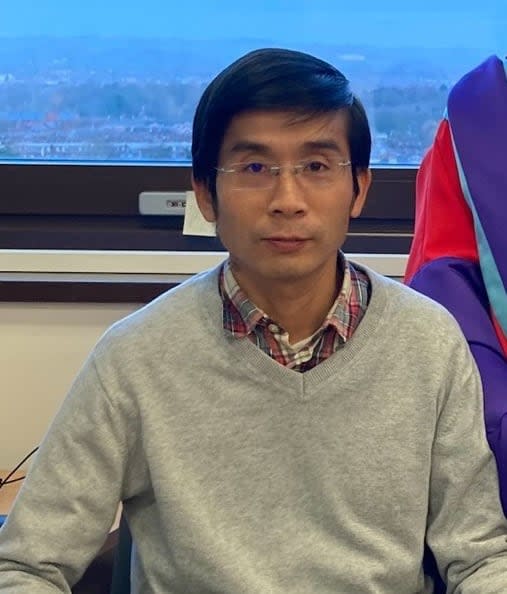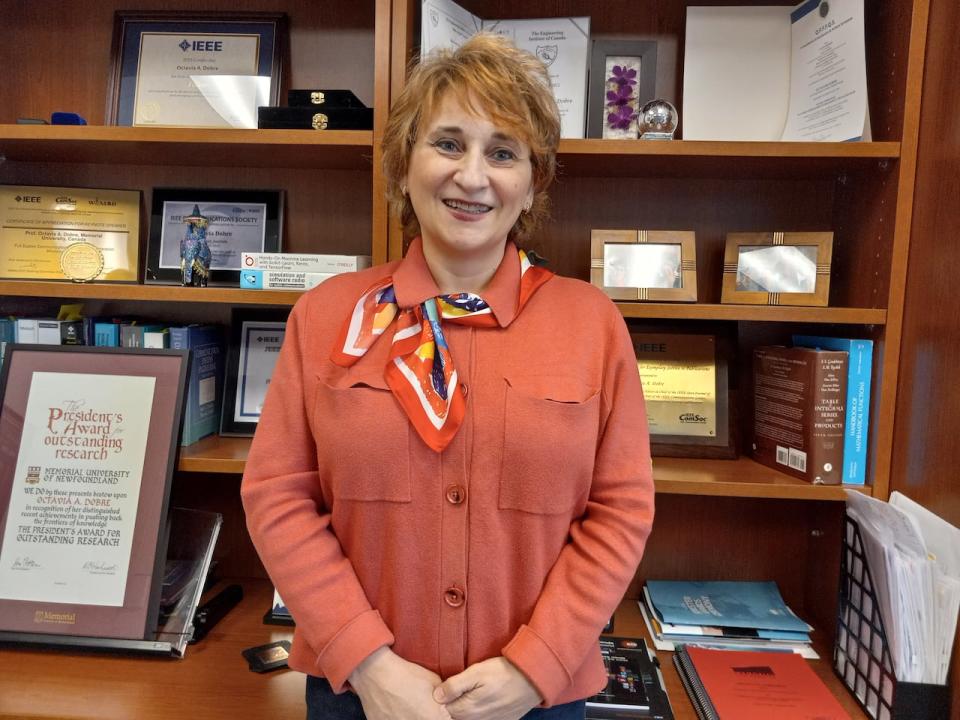MUN professor tapped to delve into the wireless world of the future


Trung Duong has been tapped as Memorial University's first Canada Excellence Research Chair, which comes with $8 million over eight years to support his research. (Submitted by Trung Duong)
A Memorial University professor is diving into the world — and future — of communication technology.
Trung Duong, a professor in the faculty of engineering and applied sciences, was recently named MUN's first Canada Excellence Research Chair. The position, announced in November, is an eight-year award that comes with $1 million a year, funding that will support his research into what the wireless world could look like in years to come.
"This is the best research award for any scientist, I think, in the world at the moment because we have a very long-term support from the government to, you know, do our research," Duong told CBC News.
Technology develops quickly, he said, especially communication technology, and the field requires a lot of investment into research from universities and companies.
Octavia Dobre, professor and interim dean of the faculty of engineering and applied science, said the research chair is part of a federal competition that attracts top researchers from around the world.
"Dr. Trung Duong is one of these top researchers," she said.

Octavia Dobre, a Memorial University professor and interim dean of faculty of engineering and applied science, says the Canada Excellence Research Chair attracts top international researchers to apply for the lucrative position. (Elizabeth Whitten/CBC)
For Duong, the appeal of his research lies in how it can be applied beyond wireless networks, with ramifications for, among other areas, climate change and health care.
"This is very exciting research. That's the most exciting for me because it can apply to many other areas," he said.
Dobre added the COVID-19 pandemic has shown how essential it is for people to be able to communicate with one another.
There are also a lot of opportunities to bring broadband to more remote communities, she said, which could mean surgeries performed remotely someday.
"This seems like a dream but the technology has evolved so much in the last 30 years. Unbelievable," she said. "So maybe in the next 20 years this will become a reality."
New technology on horizon
The sixth generation — 6G — of cellular technology will be another leap, said Found. Twenty years ago it took an hour to download a high-definition video to a phone and 10 years ago — 4G — it had improved, taking less than a minute. Now that same video takes just a second, he said.
But new technology isn't just about speed, he said, but also accuracy, security and reliability.
It's also not just about smartphones, he said. If devices that are part of the Internet of Things — a collective network of devices and communication technologies that connect devices with the cloud and other devices — are factored in, it could mean billions of devices will be online by 2030.
The devices will also be a challenge for communication providers, he added, particularly with applications that will require high speed and low latency — a network's ability to send back responses with a low wait time.
People all over the world are studying the issue and working together, across universities, research institutions and industry, said Duong.
"Whatever we do in the research, in the university, we work on the fundamental thing and we also have to collaborate with industry so that we can translate the fundamental research into the industry."
Dobre said academics working with industry is essential: "Without the connection and interaction with industry, you know, we would be really isolated in the academic world."
Download our free CBC News app to sign up for push alerts for CBC Newfoundland and Labrador. Click here to visit our landing page.

